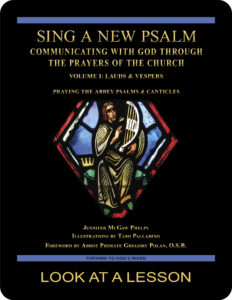mercy
 In the first chapter of his First Letter to Timothy (NABRE), Paul describes how he was a blasphemer and a sinner and how God treated him mercifully—emphasizing the great mercy of God and our tremendous need before him.
In the first chapter of his First Letter to Timothy (NABRE), Paul describes how he was a blasphemer and a sinner and how God treated him mercifully—emphasizing the great mercy of God and our tremendous need before him.
The Greek word ἔλεος (eleos), “pity” or “mercy,” suggests kindness or good will toward the miserable or the afflicted. As we reflect on the mercy of God, we’re also called to reflect on our own state of misery and lowliness and need. Mercy is not shown to those who are not in need of it. Mercy is given to the lowly and the pitiable in society. The parable of the prodigal son in the Gospel According to Luke 15:1–32 (NABRE) shows a similar picture of someone who has been made low and is now able to ask for pity.
What these readings suggest is that we all are miserable or pitiable before God. In asking Jesus for mercy, we acknowledge that we are somehow broken and afflicted, and we implore help from our Lord.
related topics: agape; Divine Mercy; First Letter of John; First Letter to the Corinthians; jubilee pilgrimage; passion
you also may like Volume I of our Psalms study
 Sing a New Psalm: Communicating with God Through the Prayers of the Church—Volume I: Lauds & Vespers provides an in-depth look at Psalms prayed in morning and evening liturgies. (Volume II, set for publication in 2024, looks at Vigils, Day Prayer & Compline.) The study is based on The Abbey Psalms and Canticles, a translation prepared by the Benedictine monks of Conception Abbey and published by the United States Conference of Catholic Bishops (USCCB). Click on the book’s cover to view a sample lesson.
Sing a New Psalm: Communicating with God Through the Prayers of the Church—Volume I: Lauds & Vespers provides an in-depth look at Psalms prayed in morning and evening liturgies. (Volume II, set for publication in 2024, looks at Vigils, Day Prayer & Compline.) The study is based on The Abbey Psalms and Canticles, a translation prepared by the Benedictine monks of Conception Abbey and published by the United States Conference of Catholic Bishops (USCCB). Click on the book’s cover to view a sample lesson.
 Click on the picture of the statue of Moses with horns (above) to learn more about Lost in Translation. A new entry is archived each Monday. Contact us to receive Lost in Translation by email every week. You may use any of the contact links on our website to ask Matthew a question.
Click on the picture of the statue of Moses with horns (above) to learn more about Lost in Translation. A new entry is archived each Monday. Contact us to receive Lost in Translation by email every week. You may use any of the contact links on our website to ask Matthew a question.
